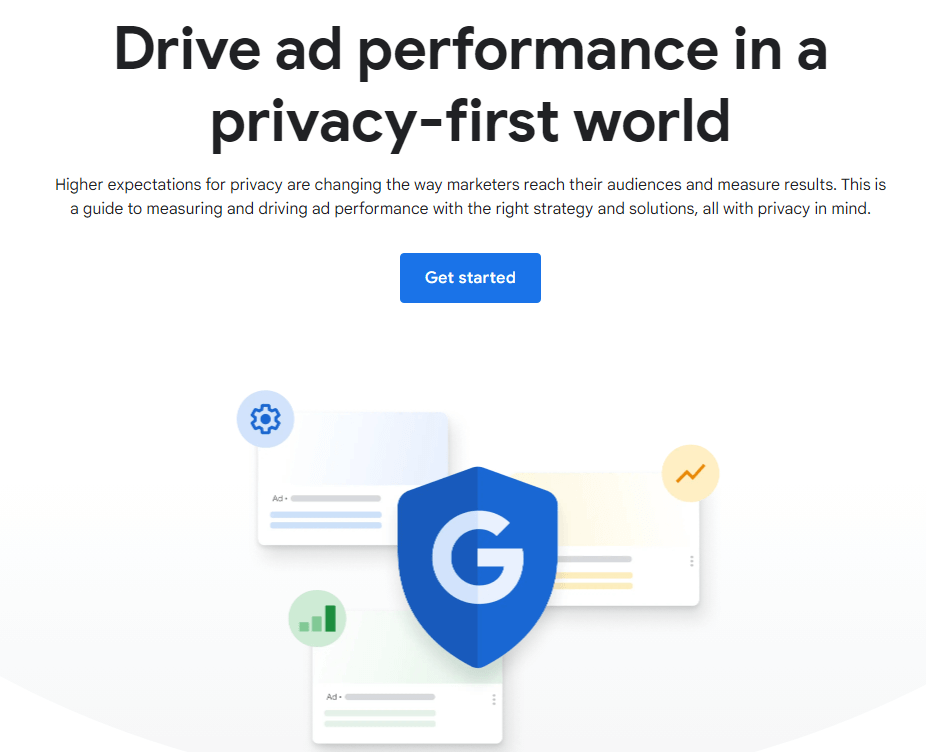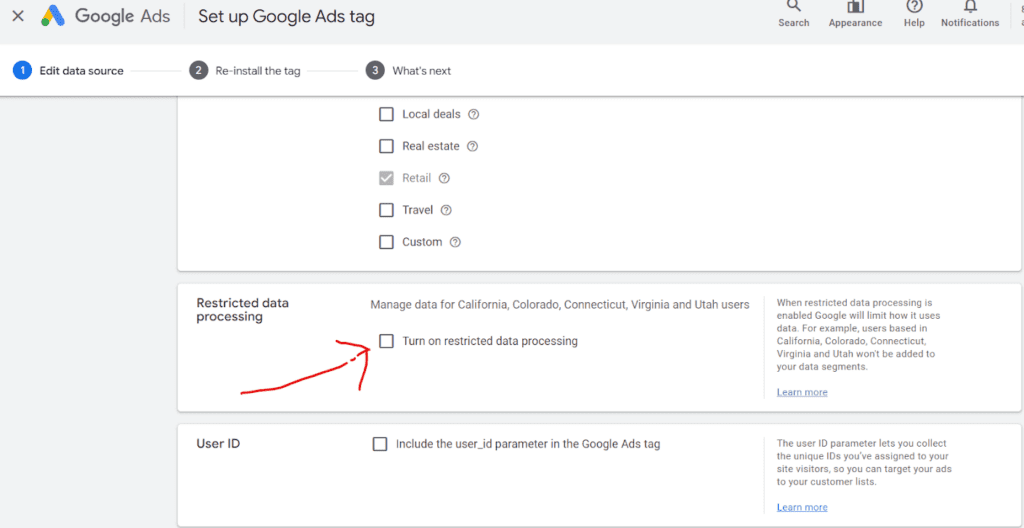
Several states in the US are taking a stand for consumer data privacy with new laws coming into effect. These include Florida, Texas, Oregon, Montana, and Colorado. Additionally, the Colorado Privacy Act (CPA) will now enforce its Universal Opt-Out Mechanism (UOOM) provisions.
These laws give users more control over their privacy. By introducing enhanced compliance tools, Google is making it easier for advertisers to comply with the new consumer privacy laws. Naturally, this sudden change has left businesses wondering about ad performance going forward, including factors like PMax audience signals and remarketing campaigns.
What do the changes mean for your business and high-quality first-party data? Will cookie management platforms and server-side conversion tracking be affected? Get the rundown with Coalition.
Table of Contents
Key Updates
- Google Ads will enable Restricted Data Processing for the states mentioned above. This means that Google will act as a data processor instead of a controller.
- What does this mean? Once RDP is enabled, Google will limit how it uses user data. In other words, this data can’t be used for targeted advertising. Ads will be more general and not tailored to the user’s interests or browsing history.

- Colorado Universal Opt-Out Mechanism: Users can send Global Privacy Control (GPC) signals to opt out of having their data used for personalized ads.
- In addition to enabling Restricted Data Processing for Google Ads, Google will update their existing Google Ads Data Processing Terms, Google Ads Controller-Controller Data Protection Terms, Google Measurement Controller-Controller Data Protection Terms, and U.S. State Privacy Laws Addendum to comply with the following consumer data privacy laws:
- California Privacy Rights Act (CPRA)
- Colorado Privacy Act (CPA), including UOOM
- Connecticut Data Privacy Act
- Virginia’s Consumer Data Protection Act (VCDPA)
- Utah Consumer Privacy Act (UCPA)
- Similar consumer laws for Florida, Texas, Oregon, Montana, and Colorado
What do advertisers need to do?
No action is required from the advertiser if they have already accepted Google’s online data protection terms. Google Ads will handle Restricted Data Processing and the other changes depending on the advertiser’s location.
The Impact
- Ad personalization will take a hit, and advertisers may have to work with a smaller personalized ad inventory.
- Ad targeting efficiency will also be reduced due to these restrictions. High-quality first-party data and server-side conversion tracking will become more critical.
- Cookie management platforms will need to adapt by focusing on first-party cookie consent.
- Certain Google Ads features will experience reduced functionality, including PMax audience signals and PMax remarketing, as users opt-out via GPC.
- Some products on Google Ads already incorporate Restricted Data Processing and may see a further drop in efficiency due to the new consumer data privacy laws. This includes Customer Match, store sales (uploads), offline conversion imports, and enhanced conversions for web and leads.
What is Coalition Doing?
The changes to ad targeting are challenging, but there is a way to maintain and improve effective campaign performance. At Coalition Technologies, we’re focused on:
- Running 100% accurate Google Ads conversion tracking, including enhanced server-side conversion tracking.
- Syncing the latest customer list data within Google Ads and using high-quality first-party data in campaign targeting.
- Using PMax tools to mitigate the loss of efficiency due to Google Ads’ Restricted Data Processing settings.
- Ensuring dynamic remarketing parameters fire accurately for proper PMax campaign performance.
- Working with cookie management platforms like CookieYes can make it easier for websites to comply with consumer data privacy laws.
Keep Up With The Latest Changes
Sweeping updates to ad targeting can hurt your campaigns overnight–but they don’t have to. Working with a Google-certified and top-rated digital marketing agency gives you the power to adapt seamlessly to significant changes. Contact us today for a free strategy review, and find out how Coalition Technologies can help you turn this update into a competitive advantage.


